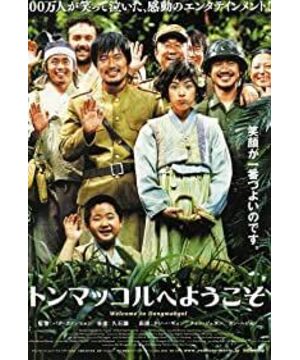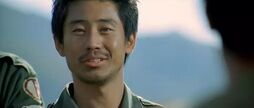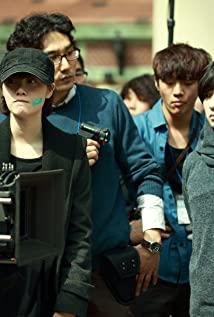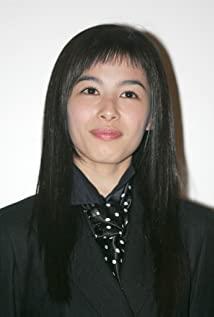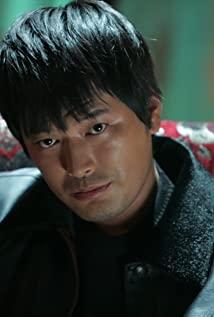In any case, the films that can be composed by Joe Hisaishi are at least worth watching. I have listened to the original soundtrack of the film a long time ago, and I know that the film is very good, but I did not finish the film until today. I turned off the player, the theme song of the movie lingered in my mind for a long time, and I always felt that it was not a good taste...
Army... A heavy word, I am a soldier, but I really don't like killing people, so I joined the "Military Doctor" ” ranks. In the movies I've watched, the military usually doesn't play a good role, except for the heroic soldiers fighting floods and rescuing earthquake-stricken areas. In the movies, most of the soldiers are cold-blooded, kill people without blinking an eye, and use black gun holes to meet each other. Types of pointing to strangers. Although there are also flesh-and-blood movies like "Soldier Under the City", in most cases, the "army" image in the movie (this kind of army refers to an overall concept, such as the South Korean army, the North Korean army, and the United Nations army in this film) , basically it will not be a positive image, which is also related to the additional meaning of the word itself - war.
I think what the film focuses on expressing should be human nature, whether it is a South Korean soldier, a North Korean soldier, or the United Nations army. At first, you might think that the army of the Northern Dynasty was too cruel. In order not to delay the retreat, they killed wounded soldiers. Later, according to the commander, in addition to wounded soldiers, they also killed women in the army (it should be female soldiers). But when a group of soldiers from South Korea mercilessly killed the soldiers who surrendered from the North Korea, my mind was equally painful. The director didn't whitewash his country's kindness just because he was Korean. Isn't the reason why Captain Biao became a deserter because he had to obey the orders of his superiors to blow up the bridge full of innocent people? When the paratroopers landed in Dongmo Village, when the South Korean soldiers grabbed the village chief's head and smashed it on the ground, is there any difference between the South Korean army and the North Korean army?
The most beautiful scene in the movie is the scene where everyone is skating, playing rugby, and celebrating. Although I also understand when I see it there, after passing this most beautiful place, as usual, tragic things will come. , but I still hope that the movie can stay in these beautiful scenes for a while longer, even for a second, because after this, it is a story of life and death...
I saw this kind of film review: The last North-South coalition forces united to fight the American planes, in fact, it means that the family is originally a family, and the family should go abroad, and the goal of the struggle is against the foreign enemy.
I have a hard time agreeing with this opinion.
I think we should start with the name of the movie: "Welcome to Dongmo Village". In fact, we all understand that Dongmo Village is a paradise. In Dongmo Village, people live a carefree life and do not know the outside world. what. Just like the most primitive "goodness" of people, the people of Dongmo Village are the most primitive kindness. Whether it is a Northern Dynasty, a South Korean, or an American, after arriving at Dongmo Village, they are all infected by the most primitive kindness. They put down their weapons and work and play together, just like Americans carrying As the old grandmother said when she left the people at the banquet: "Look at these people, this is life." The director did not emphasize narrow nationalism. In my opinion, he actually wanted everyone to live in harmony. of. Until the time when the soldiers were going to build a so-called air defense base, even if the medics (I forgot the name) refused to participate, the Americans abandoned their narrow nationalism and were willing to go with them, even if everyone finally let Smith Go, Smith still said "I don't want to go back to base camp, I want to go with them". In Dongmo Village, no one understands English, but in this most primitive kindness, Americans are fully integrated into it. In the calm and peaceful Dongmo Village, it is based on the ethnic background of South Korea, but there are also English textbooks and cameras. I think this is what the director wants to say, use kindness to embrace everything, and use the power of kindness to infect People, move people.
PS There are three places in the movie that made me laugh and get down: 1. In the part where Koreans speak English, Mr. Kim just relied on Americans not saying the typical "How are you?" "I'm fine, thank you. And you?" "I'm fine." Determined that this was a fake American. 2. The director filmed the place where everyone killed wild boars. The way of filming is too interesting. Three or three groups of people sneaked to the place to eat wild boar, and I had a good time in front of the computer for a long time.
View more about Welcome to Dongmakgol reviews


